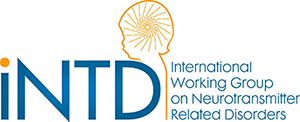Rare Neurotransmitter Diseases (RND) Researchers Forum
Connecting the Network: from basic research and clinical phenotypes to patient voice
16th May 2025, Movenpick hotel Zagreb
We are looking forward to welcoming you to Zagreb, Croatia, for the Rare Neurotransmitter Diseases (RND) Researchers Forum, the event developed within The Chan Zuckerberg Initiative, Rare As One Network CZI RAO project, granted to patient organization Lil’ Brave One (Hrabrisa).
The aim of the RND Researchers Forum is to contribute to knowledge exchange on research advancements, diagnostic tools, and treatment modalities but also provide an opportunity for the experts to gather insights from the patient-led organizations and patients themselves. RND Researchers Forum aims to strengthen and enlarge the RND network, particularly emphasizing involvement of young researchers, which will further stimulate research and innovation in this field.
The forum aims to align experts on the latest scientific developments, identify key research gaps, and establish shared, patient-driven research priorities.
Venue
- Hotel: Movenpick**** hotel Zagreb, Croatia, 6H 2 Oreskoviceva Str, 10020 Zagreb, Croatia. Meeting room Penkala
Registration is free of charge and includes catering during the conference.
- Registration is mandatory, registration link here
Contact Information
For any questions or assistance, feel free to contact:
- Ivana Badnjarević: +381 64 26 16 500 (WhatsApp, Viber available),
Email: udruzenje.hrabrisa@gmail.com , badnjarevicivana@gmail.com
- Thomas Opladen, Scientific Advisor
Email: thomas.opladen@med.uni-heidelberg.de
- Ana Pataki, project coordinator: +381 60 32 23 098
Email: hello.hrabrisa@gmail.com
Agenda:
| Friday, 16th May 2025, Movenpick hotel, Meeting room Penkala | ||
| 09:30 – 09:40 | Reception and introduction
|
Ivana Badnjarevic, Dr Galina Stevanovic, Dr Thomas Opladen |
| 09:40 – 09:55 | CZI project dedicated to accelerating research on RND | Ivana Badnjarevic
Patient organisation Lil’ Brave One (Hrabriša) |
| 09:55 – 10:15 | Title TBC | Dr Ivo Baric, KBC Zagreb |
| 10:15 – 10:35 | Tetrahydrobiopterin and its importance in RND | Dr Nenad Blau (recorded video presentation) |
| 10:35 – 11:00 | iNTD network and iNTD registry | Dr Thomas Opladen, Kathrin Jeltsch |
| 11:00 – 11:15 | Q&A | |
| 11:15 – 12:00 | Coffee break | |
| Session 1: Clinical presentation | ||
| 12:00 – 12:20 | Clinical case
Succinic semialdehyde dehydrogenase deficiency (SSADH) |
Dr Ivo Baric, KBC Zagreb
Dr Danijela Petković Ramadža, |
| 12:20 – 12:40 | Clinical case
PTPS deficiency |
Dr Mojca Zerjav Tansek (Slovenia) |
| 12:40 – 13:00 | Clinical case
Tyrosine Hydroxylase Deficiency (THD) GTP cyclohydrolase 1 (GCH1) |
Dr Galina Stevanovic (Serbia)
Dr Maya (Bulgaria) |
| 13:00 – 13:30 | Q&A Discussion with Scientific Expert Committee:
Dr Àngels García-Cazorla (Spain), Dr Thomas Opladen (Germany), Dr Galina Stevanovic (Serbia) |
|
| Session 2: Patient advocates lens | ||
| 13:30 – 13:45 | A roadmap for RND Research: insights from the patient community | Patient organization Serbia (Hrabrisa)
Ivana Badnjarevic |
| 13:45 – 14:00 | Shaping research through the patient lens: priorities and needs | Patient organization Croatia (HSRB)
Sara Bajlo |
| 14:00 – 14:15 | Patient advocates as research partners: defining mutual priorities
|
Patient organization Bulgaria
Suzàn Genova, patient advocate MetabERN |
| 14:15 – 14:30 | Q&A, discussion | |
| 14:30 – 15:30 | Lunch | |
| Session 3: Research threads and themes in RND | ||
| 15:30 – 15:50 | Transcriptome profiling of iPSC-derived neurons | Maja Stojiljkovic, Serbia |
| 15:50 – 16:10 | An Italian patient with SSADHd, from molecular to cellular studies towards patient-derived models | Samuele Cesaro, Italy
Giulia Spagnoli |
| 16:10 – 16:30 | AADCd knock-out neuronal model combined to structural studies for a focused therapeutic approach | Giovanni Bisello, Italy
Anita Yousefimonfared |
| 16:30 – 16:50 | synapse-on-a-chip | Dr Àngels García-Cazorla, Spain |
| 16:50 – 17:30 | Discussion: Mapping research goals and resources, identifying new ideas for joint research in NTDs | |
Aims:
- To inform about the opportunity and motivate centers to join iNTD network
- To support recruiting patients into iNTD registry
- To identify common threads and themes in RND
- To map research resources
- To identify new research ideas
- To understand patient view
- To improve research exchange among young scientists/clinicians
- To strengthen communication among all professionals and patient representatives
- To lay the foundations for a RND patient umbrella organisation

